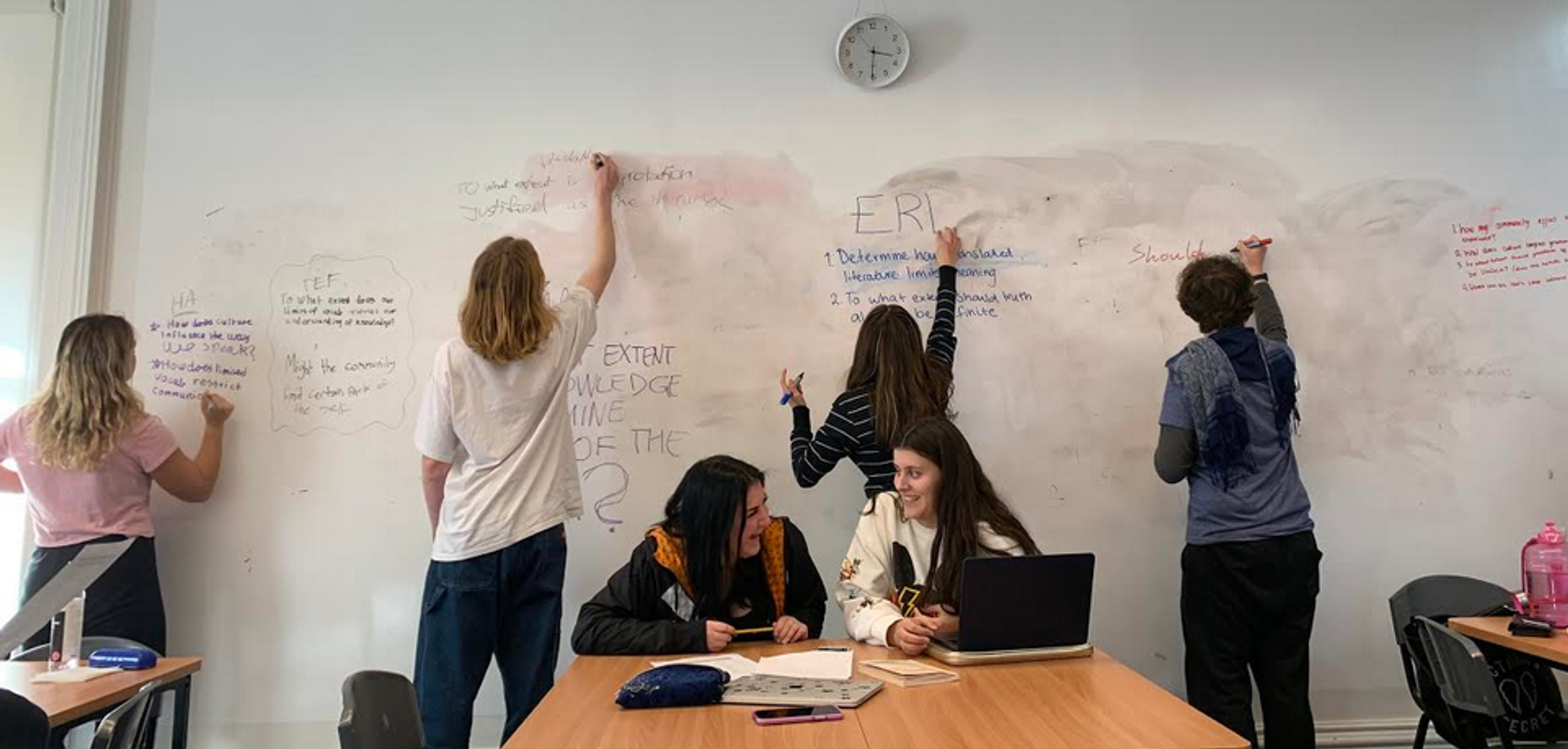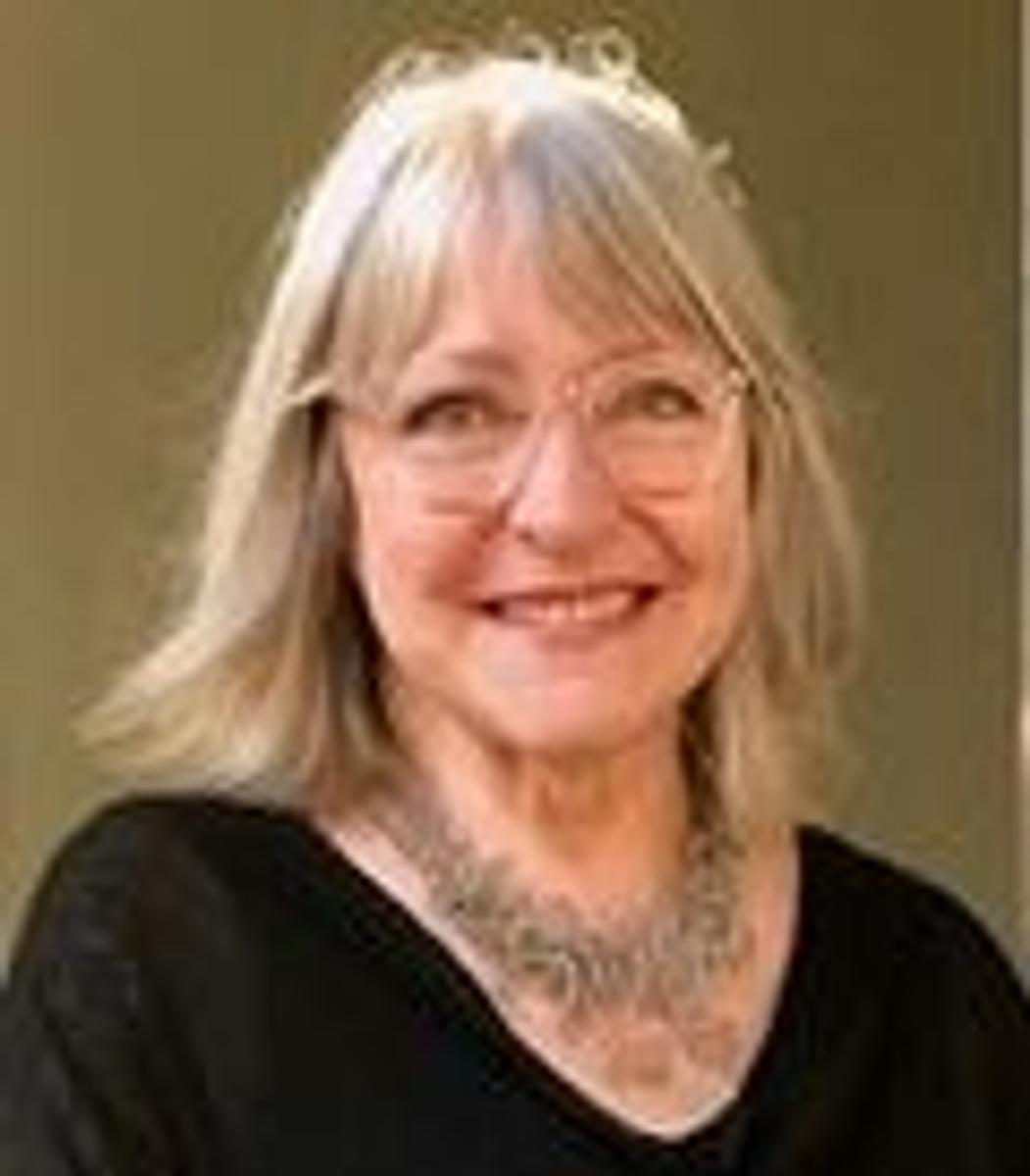From the Principal
Getting back to onsite learning will offer a reprieve from Zoom as students reconnect with each other, collaborate and share their ideas.

From the Principal
Getting back to onsite learning will offer a reprieve from Zoom as students reconnect with each other, collaborate and share their ideas.
Countless words have been written about the requirement of schools to suddenly change tack and deliver programs online to our students of all ages at home. Never would we have imagined that our relationships with children and their families would be mediated so predominantly through a screen, and I am in awe of the way our teachers responded to this extraordinary challenge.
This emergency also meant that schools and teachers were all at once interesting to a media that has pretty much ceased all reporting of education, opting for the clickbait of the occasional scandal rather than serious coverage. Many adults found themselves engaged in education in ways they neither expected nor enjoyed, while other families loved this opportunity and will struggle to relinquish their changed roles and relationships as educators.
Now we are at the point where the, perhaps premature, advantage of hindsight is giving rise to even more words on what this period of pandemic has meant; not just for schools and education, but for banking, retail, medicine, and the food industry, marvelling at the quantities of sourdough being produced by novice bakers. Sadly, the Arts have been even more marginalised by this paring back of all the ‘non-essentials’.
We are being invited to embrace the return to pre-pandemic times with puff pieces in lifestyle magazines, looking for the ‘nusual’, as we grapple with yet another ‘unprecedented’ reason to see change as something other than the constant it is.
A much more serious and unsettling piece, written by Anna Krien and published in The Monthly, looks at how this sudden lurch into online learning has in fact delivered schools and our students into the opportunistic arms of the global tech giants and their voracious appetite for big data and ever more market share, in areas of traditional, hard-won expertise and not-for-profit human endeavour.
These behemoths feed on the simplistic; standardising and enforcing populist, easeful sameness in a world of ruthless competition, where the stakes are incalculably high and the human scale dwarfed to insignificance.
Remote learning and online programs, Krien points out, have offered parents a window into curriculum and learning, allowing them to consider the role the tech giants have assumed, with serious implications for schools and students alike: increased screen time and domination of targeted apps and programs.
Krien quotes: In 2018 Roger Kneebone, a surgeon and professor at London’s Imperial College, told the BBC that he and his colleagues were seeing a significant decline in manual dexterity in medical students. ”It is an important and increasingly urgent issue” the surgeon declared, pleading with schools to deliver a more rounded education with creative and artistic subjects, “where students use their hands”. (This has a special irony given that a student in Victoria can’t actually achieve the required score to get into Medicine without giving up such frivolous subjects as Art or Music.) Krien goes on to say "Declining dexterity is not the only loss. Ready-made visual content cannot replace imagination; in fact it is possible that too much of the former can displace the latter. Imagination is not some artsy attribute you can skip. It is the key to cognition, to making sense of abstract imagery and difficult concepts. It is inner work."
Margaret (Greta) Lyttle expressed a similar view in 1940.
"The children in our schools should be writing, acting, producing their own plays, writing their own poetry, painting their own scenery, creating their own dances. Art, music, drama are not the frills of education but an integral part of it; the part, indeed, which helps the soul to blossom."
And again, from our Courage document "To this end, the education of children for self-control, sensitivity, both to others, and their own environment, and for clear and imaginative thinking, is best achieved through the arts."
Preshil has continued to uphold the central role of imagination from earliest childhood. The visual arts, music, drama and physical movement have been cherished and truly prized, not just in our rhetoric, but modelled daily in our programs. Imagination, through play and most recently through the emergence of cutting edge pedagogy of PlayWorld, has been central to the learning at Arlington.
Our three IB programmes place conceptual understanding at the centre of every unit. The Arts have an equal share of the timetable and are valued equally to those core subjects, subjects that can be learnt by rote and are prioritised for their ease of comparison in standardised tests. Preshil prizes the study of philosophy to support genuinely rigorous intellectual challenge and takes seriously the DP Creativity, Activity and Service project, to ensure our students can continue to challenge themselves physically as they find creative ways to engage with real people in real time. We run an Elective program as an additional extra to ensure experimentation, creative expression and hands-on learning.
At the start of next term, the teachers from both campuses will devote their Professional Development Day, on Monday 13 July, to an intensive evaluation of our remote learning provision and the impact it has had on our students, both their wellbeing and their learning. In preparation for this day we will seek further feedback from our students through a number of formal and informal channels. Interestingly, one of the most positive elements to have emerged from our time in lockdown has been the potential for focused individual connections that have been reinforced between students and teachers - the School has long maintained that it is the quality of the relationships that underpin learning at Preshil.
During the period of remote learning we have sought and received feedback from families and now, with hindsight, we ask that you let us know what you think we should keep, what we should discard, how we can incorporate the best in the future, onsite program. Write to us; we are listening.
How much should we, and can we, resist the tide that washes the whole of our society towards a future saturated in screens, apps and technology?
Once again, as with so many issues that our adult society accepts ‘as just the way things are’, such as inequality, violence, cheating and the endemic abuse of power, schools are held to a different level of account. In succumbing to the relentless pressure to adopt technological solutions, schools are scrutinised and… found to be remarkably similar to the society that has created them.
It reminds me of the hundreds of educators who have rushed off to see why Finland has such wonderful schools - and have found that Finnish schools are a remarkably accurate representation of the society around them.


Marilyn Smith
Principal